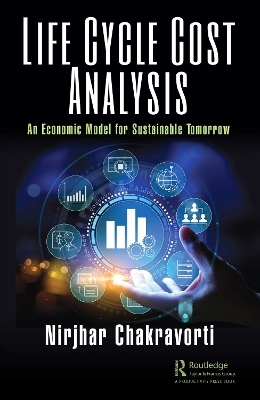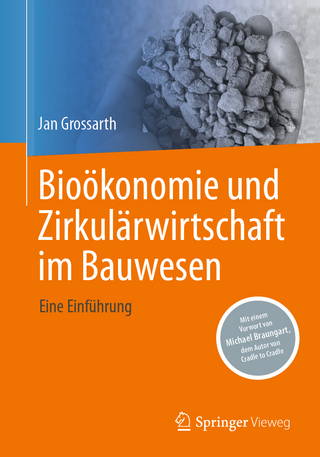
Life Cycle Cost Analysis
Productivity Press (Verlag)
978-1-032-61167-9 (ISBN)
Life Cycle Costing (LCC) is the process of economic analysis to assess the total cost of ownership of an asset, including its cost of procurement, installation, operation, maintenance, conversion, and decommissioning.
The economic approach to assess the total cost of owning an asset or facility is known as Life Cycle Cost Analysis (LCCA). LCCA is a key economic tool for business decision-making in terms of various functional requirements, such as sustainability, asset management, supply chain management, and project management.
Every organization is a combination of various interrelated functions or departments. Every function has its own set of objectives and targets. Even though all functions try to achieve overall organizational objectives, in reality, they work to protect their functional interests as well. In many cases, it becomes detrimental to the health of the organization. This conflicting behavior increases when decisions are made on subjective considerations. When a company's strategy works on an objective platform, chances of conflict are reduced. LCCA can be used as a management decision tool for synchronizing functional conflicts by focusing on facts, money, and time.
Life Cycle Cost Analysis: An Economic Model for Sustainable Tomorrow explains a simple, innovative model to carry out LCCA, along with a unique methodology to determine how the value of money changes over a period of time.
Nirjhar Chakravorti currently serves as General Manager for Tata Consulting Engineers Limited. In that role, he oversees: -- Engineering Consultancy Services for Steel Plants -- Asset Management for Steel Plant Equipment & Systems -- Application of Economic Principles in the Analysis of Engineering Decisions to ensure Business Sustainability -- Previous to this position, he served as the Lead for Asset Integrity Management (Air Pollution Control Systems) at Tata -- Consulting Engineers Limited leading asset integrity management activities for steel plant Air pollution and dust control systems. Nirjhar earned his BE in mechanical engineering from the Jalpaiguri Government Engineering College and received the PGDBM certificate from the Institute of Management Technology Ghaziabad CDL.
Acknowledgements. Author’s Biography. Introduction. Chapter 1 Overview. Chapter 2 Purpose of Life Cycle Cost Analysis. Chapter 3 Life Cycle Cost Analysis Methodology. Chapter 4 Case Study for Life Cycle Cost Analysis. Chapter 5 Salvage Value. Chapter 6 Sample Life Cycle Cost Analysis Report. Chapter 7 Project Management Decisions. Chapter 8 Impact of Life Cycle Cost Analysis. Chapter 9 Life Cycle Cost Analysis Experiences. Bibliography. Index.
| Erscheinungsdatum | 17.04.2024 |
|---|---|
| Zusatzinfo | 75 Tables, black and white; 4 Line drawings, black and white; 4 Illustrations, black and white |
| Verlagsort | London |
| Sprache | englisch |
| Maße | 152 x 229 mm |
| Gewicht | 439 g |
| Themenwelt | Naturwissenschaften ► Biologie ► Ökologie / Naturschutz |
| Technik ► Umwelttechnik / Biotechnologie | |
| Wirtschaft ► Betriebswirtschaft / Management ► Logistik / Produktion | |
| Wirtschaft ► Betriebswirtschaft / Management ► Unternehmensführung / Management | |
| Wirtschaft ► Volkswirtschaftslehre | |
| ISBN-10 | 1-032-61167-7 / 1032611677 |
| ISBN-13 | 978-1-032-61167-9 / 9781032611679 |
| Zustand | Neuware |
| Haben Sie eine Frage zum Produkt? |
aus dem Bereich


